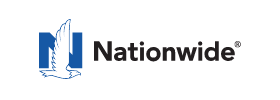Observed every April, Alcohol Awareness Month is meant to raise awareness about alcohol use and break the stigma by discussing how alcohol-use disorders affect individuals, families, and communities. This year is especially critical as COVID-19 restrictions and stress can increase your susceptibility to substance misuse, addiction, and relapse. In fact, alcohol sales in the United States have grown nearly 30% in the last year.
Alcohol abuse can affect both your personal and professional life. Prolonged drinking puts you at risk for developing serious health complications—such as high blood pressure, heart disease, liver disease, and stroke— and can trigger other life-threatening consequences.
Know the warning signs
Alcohol use disorder can be mild, moderate, or severe, based on the number of symptoms you experience. Keep in mind that symptoms often occur at the same time. It can also include both periods of alcohol intoxication and withdrawal symptoms—such as sweating, shaking, and nausea.
Common physical and behavioral signs and symptoms of alcohol misuse include the following:
- Feeling irritable or experiencing mood swings
- Having poor coordination
- Showing signs of slurred speech
- Experiencing blackouts or short-term memory loss
- Isolating from friends and family
- Failing to complete responsibilities and obligations at home or work
- Drinking alone or in secrecy
- Making excuses for drinking, such as to relax or deal with stress
- Engaging in risky behavior, such as drunk driving
If you or a loved one are concerned about alcohol use, talk to a doctor or use the Substance Abuse and Mental Health Services Administration’s (SAMHSA) National Helpline by calling 800-662-HELP (4357).
Moving 11 Minutes Per Day Can Improve Your Health
There’s no denying that the pandemic has hampered activity levels. On top of exercising less, you are likely sitting more than normal too. However, a sedentary lifestyle can be hazardous to your health. Although this type of lifestyle may be a pandemic reality, there’s good news about the benefits of small move goals.
According to new research from the Norwegian School of Sports Medicine, just 11 minutes of daily, moderate exercise can provide long-term health benefits and increase your life span. Additionally, people who worked out at least 35 minutes per day saw the biggest results in terms of health, especially joint health.
Any movement, no matter the duration, is beneficial, as long as you accumulate enough of it. And, if you take your movement outside, you can improve your mental health in addition to your physical health. Start moving today, and talk to your doctor if you have questions about any lifestyle changes.
Mental Health Support During the Pandemic
Rarely has there been a greater need for mental health support than now. Before the pandemic, there were already shortages of mental health professionals. For example, there were 45 psychologists or psychiatrists for every 100,000 Americans. In some places, that ratio was just one professional per every 30,000 people. Additionally, Mental Health America data reveals almost a quarter of adults with a mental illness say they aren’t able to get the treatment they need.
As the pandemic continues to strain health care resources and take a toll on personal well-being, there are some ways to still receive mental health support. Telehealth is a great place to start receiving mental health care via video conferencing. Additional support resources include:
- Your primary care doctor, who can point you in the direction of mental health resources
- State psychological associations
- Work-based wellness and employee assistance programs
- The SAMHSA’s National Helpline, which is free, confidential and available
- 24/7 by calling 800-662-HELP (4357)
- The United Way’s free and confidential service for community resources
There’s hope on the horizon with COVID-19 vaccine rollouts, but the pandemic is still evolving. Continue to check in with yourself and reach out for help.


















